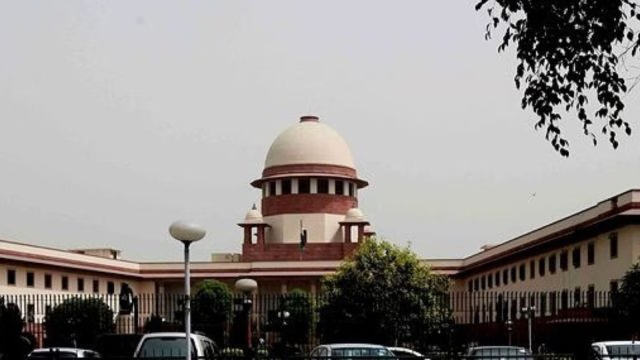SUPREME COURT on Wednesday was seriously dismayed by the “casual approach” to how the Consortium of National Law Universities had done the questions for the Common Law Admission Test (CLAT) UG-2025. A bench headed by Justices B R Gavai and Augustine George Masih found that there were number of errors committed in the exam and condemned the approach of the consortium, and cautioned that it has a consequence on the career prospects of lakhs of students.
The top court was considering a writ petition by an aspirant to CLAT which challenged the Delhi High Court judgment of April 23. In that judgment, the High Court had ordered the consortium to rectify the marksheets of the CLAT UG-2025 and redistribute the final merit list within a period of four weeks because there were mistakes in the answer key.
“Right at the beginning, we have to say how shocked we are at the cavalier way in which the respondent number one (the consortium) has been setting the questions for the CLAT examination, which concerns the career ambitions of lakhs of students in the country,” the Supreme Court observed during the hearing.

SUPREME COURT: Why does CLAT still lack a permanent and reliable examination mechanism despite past controversies?
CLAT 2025 was held on December 1, 2024, and results were declared on December 7. But the Supreme Court pointed out that it was forced to intervene since the mistakes of the consortium meant a huge difference for students. Although the court prefers not to interfere with academic issues, it pointed out that judicial intervention is called for when academic authorities are found wanting in duties.
The bench directly decided six contentious questions from the CLAT UG-2025 exam. In one environmental question, the formal answer key inadvisedly said that responsibility for safeguarding natural resources lied with the state alone. The Supreme Court dispelled this on the grounds of saying, “Time and again, this court has emphasized that both the state and citizens share this duty.”
Accordingly, the court directed favorable marks to those candidates who opted for options C or D in that question, and negative marking to those candidates who opted for A or B. In another case, the court differed with the Delhi High Court’s order to strike off a question and directed that marks be given to candidates who opted for option B. For another question, the bench confirmed the high court’s conclusion that option C was the right answer.
On two additional questions, the Supreme Court noted that the consortium had already deleted one, and ordered deletion of the second, citing minimal difference between them. Another question, involving complex mathematical analysis, was also ordered to be removed from the evaluation.
The SUPREME COURT drew its own reference to its judgment of 2018, in which it had highlighted similar malpractices in CLAT 2018. There, the top court had asked the Centre to constitute a committee to make recommendations and impose possible punitive action against the testing authority. The bench, however, regretted that nothing on these lines was done by the government since then.
In view of ongoing problems, the bench issued a notice to the Centre and sought a reply by May 16. The court specifically wanted to know why a permanent and professional mechanism for administering CLAT had not been set up yet, despite years of repeated grievances.
Earlier on April 30, the SUPREME COURT had suspended the high court order to resubmit and publish the final CLAT UG-2025 results on its own perusal. Interestingly, various petitions had been moved in various high courts challenging errors made in CLAT UG-2025. In order to clear the pendency of adjudication, the top court on February 6 directed the transfer of all such cases to the Delhi High Court.
The issue goes back to one-judge order of the Delhi High Court on December 20, 2024, which had directed the consortium to rescore the CLAT UG-2025 results owing to inconsistencies in the answer key. This was subsequently challenged, and a division bench on April 23 gave partial acceptance to objections filed by candidates.
Meanwhile, cases relating to CLAT PG-2025 are pending in the high court and still awaiting hearing.
With the SUPREME COURT intervening once again in the face of CLAT-related mistakes, demands for structural changes in the carrying out of the national-level law entrance exam are being heard louder than ever before, as stakeholders in legal education and students demand more accountability and transparency in the examination process.
ALSO READ
Supreme Court Dismisses Student’s Plea!
CLAT 2025 Twist: What Did the Delhi High Court Stated on Result Fix & Counselling Schedule?
Pingback: How to Correct Your NEET PG 2025 Application Starting May 17 -